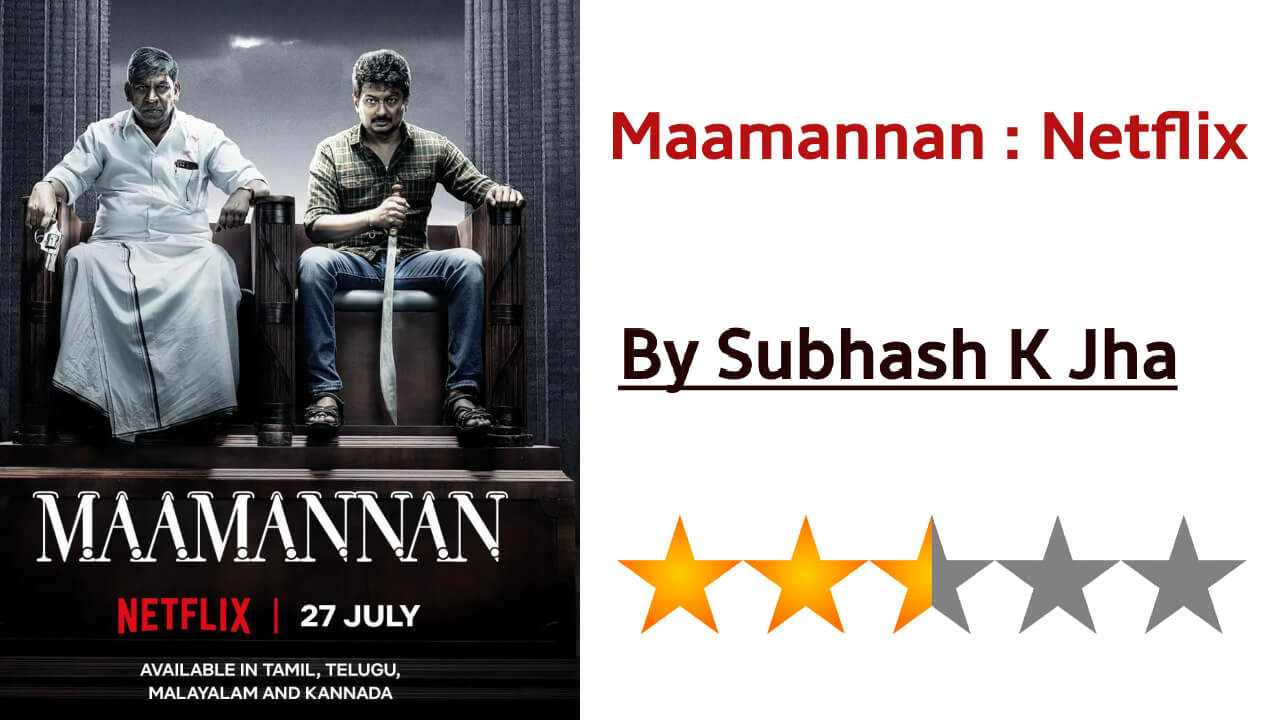Maamannan(streaming on Netflix)
Rating: ** ½
Mari Selvaraj’s Maamannan, yet another South Indian film on a caste feud, is an extremely violent film, and it is not the stylized violence of Quentin Tarantino or Anurag Kashyap. This is gut-level slaughterhouse violence, raw and direct.And deeply unaesthetic for its lack of vision and restrain.
Early in the film the incontrovertibly brilliant Fahadh Faasil, arguably the best contemporary actor in Indian cinema today, bludgeons one of his many pet dogs to death after the whimpering canine loses a dog race. Elsewhere, Faasil lets loose a pack of murderous barking dogs on a herd of pet pigs. The dogs for the upperclass villain and the pigs for the underprivileged are a distasteful alliance. The narrative keeps moving restlessly back and forth between the two.
All this could have made a much deeper impact by suggestion. None of that silly sophisticated subtlety for Mari Selvraj. If cinema is alcohol, this film is hooch.
Maamannan is a very angry film. In the absence of a controlled temper template the film resembles a series of sloppily shot scenes of street violence where niceties are resolutely done away with for the sake of realism and eyeballs.
Cinema, Selvraj should know, by its very nature is a scoured medium. It works best when the camera doesn’t cry hysterically. Maamannan’s tears of anger soak and dampen even the potentially sublime moments of caste drama. In a black-and-white flashback we see a bunch of young boys swimming and playing in a pond , being stoned to death by uppercaste goons(or goons of uppercaste despots,it isn’t clear which).
A potentially stunning sequence here looks like a video of violence shot by a passerby.
This is a film that aspires to make a strong statement on social inequality but ends up biting more that it can chew. The film’s lead actor Udhayanidhi Stalin(who is also the producer) playing an underprivileged reformist proves the weakest link in the plot. He is meant to uplift the downtrodden. But he ends up pulling down the film’s lofty aspirations.
Vadivelu who plays Stalin’s ideologically challenged politician-father gets it right. He is both a victim and an aggressor in a society that empowers the powerful. Vadivelu’s title role of Maamannan(meaning emperor) is the actual hero of the plot.
There is a recurrent reference to the underprivileged not being allowed to sit along with the uppercaste folks.This sort of soul-searching in a morass of brutality doesn’t really work , given the deafening tone of the film’s narrative ire.
What works is Fahadh Faasil as the unrepentant tyrant. He is chilling each time he creeps up on the plot. Strangely Keerthy Suresh plays a woman seeking empowerment. But the script strips her of all power by making her hang around like the hero’s favourite sidekick.


